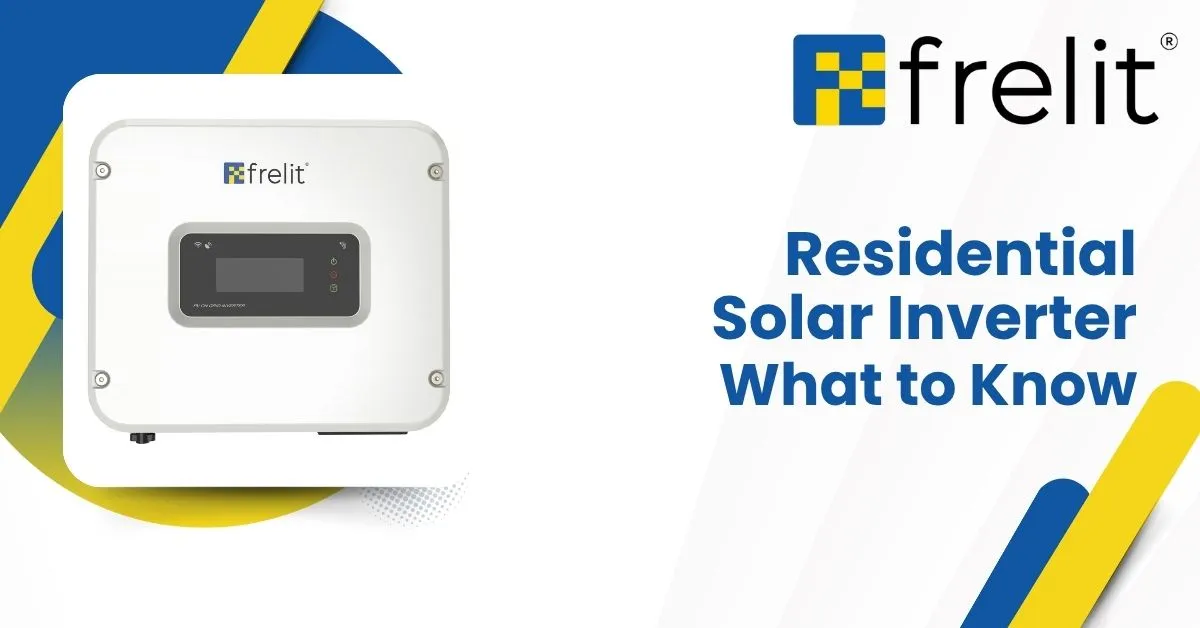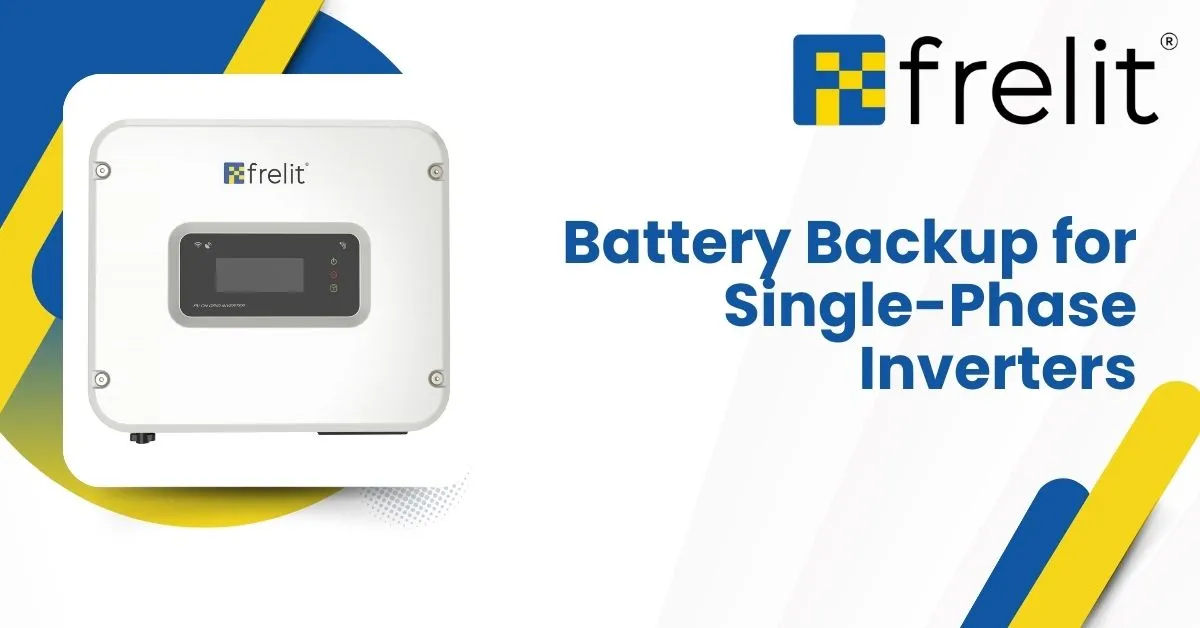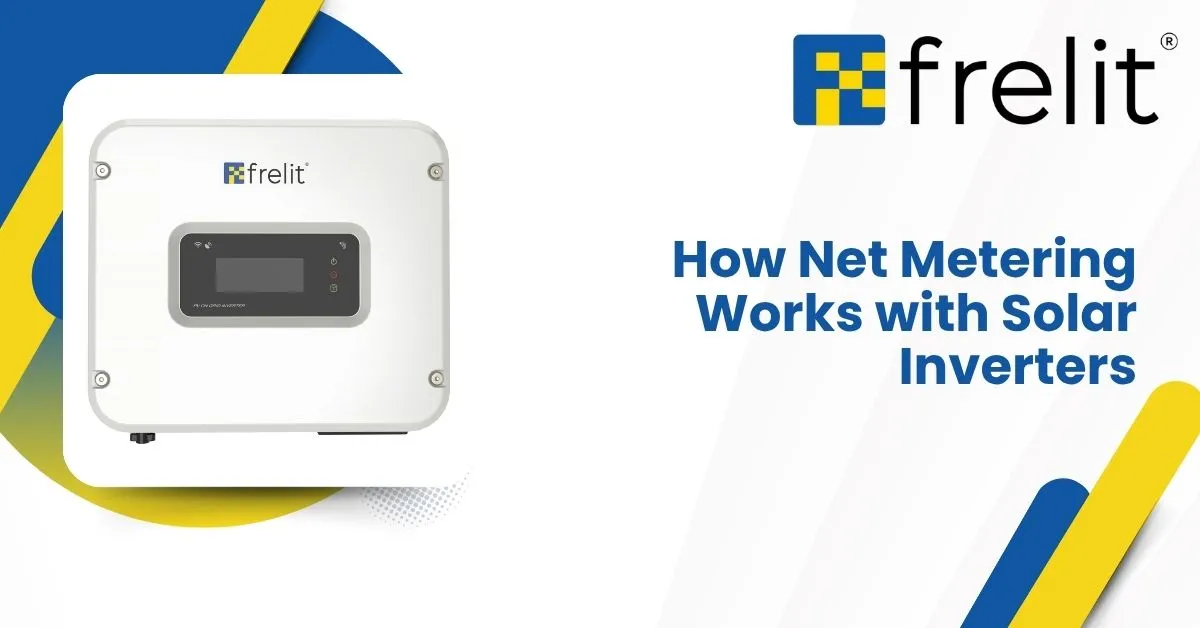
As residential solar adoption grows rapidly across India and the world, the importance of selecting the right solar inverter cannot be overstated. A residential solar inverter is the core component of a home solar system—it converts the DC power generated by solar panels into AC power, which your home appliances use.
In this blog, we’ll break down the essentials: what residential solar inverters do, types available, how to choose the right one, and installation tips.
What Is a Residential Solar Inverter?
A residential solar inverter is a device that converts the direct current (DC) electricity produced by solar panels into alternating current (AC) electricity that can be used by household appliances. It plays a key role in system performance, monitoring, and grid interaction.
Why Is It Important?
- Enables usable electricity from solar power
- Helps manage grid feedback and synchronization
- Provides real-time performance tracking
- Ensures energy efficiency and safety
Types of Residential Solar Inverters
There are three major types of inverters used in residential systems:
1. On-Grid (Grid-Tied) Inverters
- Connected directly to the public electricity grid
- No battery backup
- Ideal for areas with stable electricity supply
- Allows net metering (selling excess power back to the grid)
2. Off-Grid Inverters
- Used in standalone solar systems
- Paired with battery storage
- Suitable for remote areas without grid access
3. Hybrid Inverters
- Combine features of on-grid and off-grid inverters
- Allow solar plus battery storage and grid connection
- Great for areas with unreliable electricity
Ready to power your home with smarter solar solutions? Contact us today for expert guidance and high-efficiency inverters!
Key Features to Look For
When choosing a residential solar inverter, look for these features:
- Efficiency Rating: Above 95% preferred
- MPPT (Maximum Power Point Tracking): For maximum energy harvest
- Safety Features: Overload, short-circuit, surge protection
- Wi-Fi/Smart Monitoring: To track performance via mobile apps
- Warranty: Minimum 5 years, extendable up to 10 years
Choosing the Right Residential Solar Inverter
Here are key factors to consider:
| Criteria | Details |
|---|---|
| System Size | Match inverter capacity with your solar panel output |
| Power Requirements | Analyze daily power consumption in kWh |
| Location | Sunny areas benefit more from efficient on-grid systems |
| Budget | Balance cost with reliability and performance |
| Brand Reputation | Choose a trusted manufacturer like Frelit Energy |
Installation and Maintenance Tips
- Hire certified installers for safety and compliance
- Ensure proper ventilation for heat dissipation
- Keep the inverter away from direct sunlight and moisture
- Perform regular checks and firmware updates
- Clean solar panels periodically to ensure maximum output
Benefits of a Residential Solar Inverter
- Reduce electricity bills
- Support for net metering
- Environmentally friendly
- Energy independence
- Increase property value
Why Choose Frelit Energy for Residential Solar Inverters?
Frelit Energy is a leading manufacturer of high-performance solar inverters tailored for Indian homes. With cutting-edge technology, smart monitoring, and durable designs, Frelit inverters ensure maximum energy savings and long-term reliability.
Frequently Asked Questions
What is a residential solar inverter?
A residential solar inverter is a device that converts DC electricity generated by solar panels into AC electricity, which is used to power home appliances.
Why is a solar inverter important in a home solar system?
A solar inverter is essential because it enables the conversion of solar power into usable electricity, ensures safety, and allows for grid interaction and energy monitoring.
What are the types of residential solar inverters?
The main types are on-grid (grid-tied), off-grid, and hybrid solar inverters. Each serves different purposes based on power backup needs and grid connectivity.
How do I choose the right inverter for my home?
Choose based on your power usage, type of solar setup (on-grid or hybrid), inverter efficiency (preferably above 95%), safety features, and smart monitoring capabilities.
Can I use a hybrid inverter for my home?
Yes, hybrid inverters are ideal for homes that need both grid connection and battery backup. They offer flexibility during power outages and optimize solar energy use.
How long does a residential solar inverter last?
Most residential solar inverters last between 10 to 15 years. Choose inverters with strong warranties (at least 5 years) and proper maintenance for long-term performance.
What maintenance does a solar inverter need?
Solar inverters require minimal maintenance—regular inspections, firmware updates, and ensuring proper ventilation. Keep the unit free from dust and away from moisture.
Does Frelit Energy offer residential solar inverters?
Yes, Frelit Energy offers a wide range of high-efficiency residential solar inverters that are reliable, durable, and equipped with smart monitoring features.
Conclusion
Investing in the right residential solar inverter is crucial for maximizing your solar energy usage and reducing your electricity bills. Whether you’re planning a new solar setup or upgrading an existing one, understanding your inverter options will ensure you make the most informed choice.



